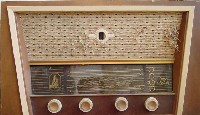Further to yesterday’s post:
So, if your eye is sound, your whole body will be full of light. (Matthew 6)
Paul Ricoeur, (1913-2005) was a philosopher and a theologian. In the midst of hard self-questioning to understand why one of his children, a son who was gay, committed suicide despite his family’s love and faith, he came to the conviction that real theology ought to lead beyond a critical preoccupation with the Biblical text.
Real theology, says Ricoeur, should lead to a fresh encounter with the divine reality, a reality to which scripture bears witness. This rediscovery or retrieval or unlearning he called the "second naïveté". Second naïveté leaves you open to the work and word of God.
Ricoeur saw how "information" about God can push us ever further from God, even if that information is logically coherent and ostensibly correct. He saw how this inevitably undermines relationship with God and therefore with others. When theology and knowledge become our treasures, God recedes.
There is a reason that the verse in Matthew about the sound or simple eye comes exactly between two warnings about treasure and the priorities of the heart.
Standing on that gravel road in Saskatchewan, not having knowledge that the aurora borealis is soundless, I was open to the "truth" that the lights not only dance but sing. Like a sequined chorus line choreographed to the shifts and changes of flow and colour. A harmony of wind through willows, the crackling of crumpling cellophane, the hissing of an old radio.
Is there hope for us who have been immured by information? Is there hope for a second naïveté? A first step is becoming open to conversion.
With the right kind of receptors and the right apparatus for conversion we can now hear the northern lights.
A few years ago scientists and more recently hobbyists began to make audio recordings of the northern lights. With a special low frequency radio receiver, the natural radio signals are converted directly into corresponding sound frequencies. When I listened to a recording, the sound I heard was similar to my memory of it years ago in rural Saskatchewan.
Equally important for the dawning of a second naïveté is unlearning, rerouting, and retraining our modernist sensibilities to postmodernist avenues of uncertain-certainty, tension, trust and relationship.
And this is related to another explanation about why I really did hear the northern lights… Continued…
Technorati Tags: Paul Ricoeur, Theology, Philosophy, Second Naiveté, Aurora Boreales, Religion, Spirituality
